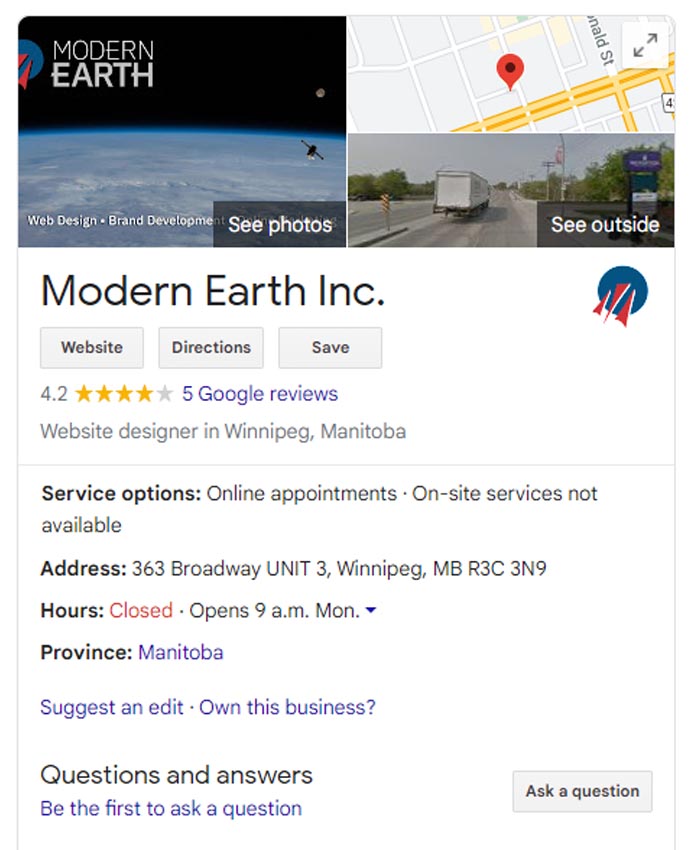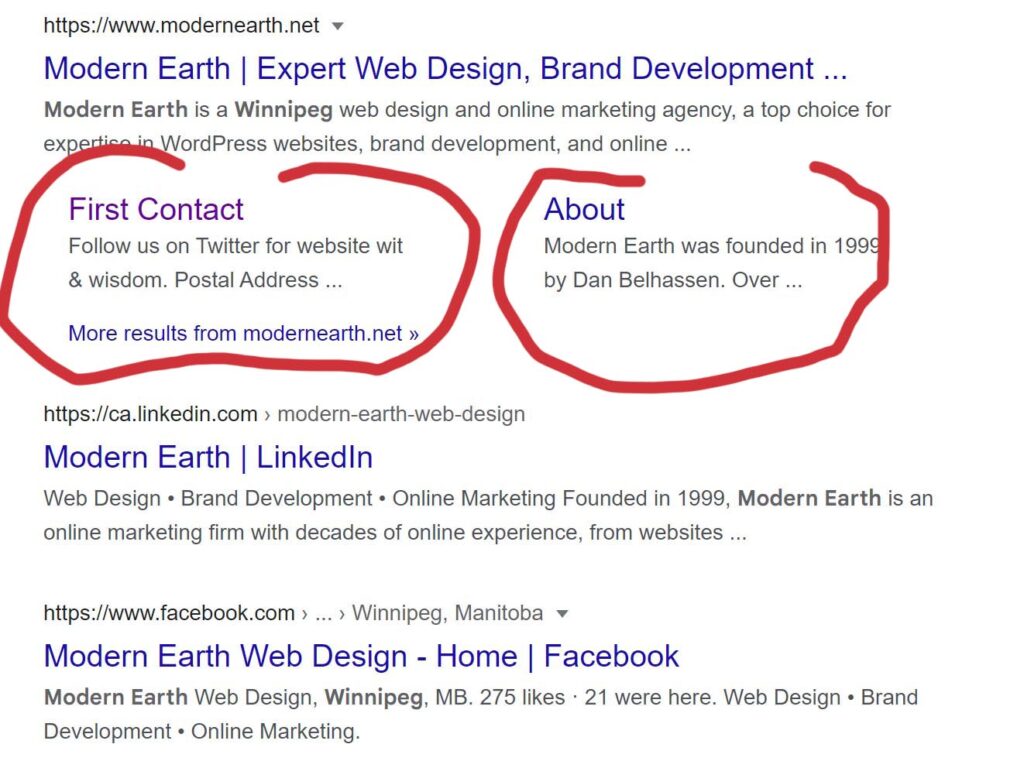SEO isn’t just for big business. As a local company, there is a lot you can do to get good results on search engines. It takes some diligence and work, but there are steps you can take to get your business found more often by interested customers.
Local SEO vs. SEO
First off we need to define the difference between SEO and Local SEO: SEO is about ranking for search terms on a national or international level that doesn’t depend on a specific location. Local SEO is about optimizing your pages to show up on search engine result pages within region-specific searches (such as when a user adds “near me” or “in Winnipeg” to their searches). Google has gone to great lengths to boost local searches in its algorithm to match when people’s search intent is for a local site or service, not an international one. Some of the tactics to boost your search rankings are the same, some are not.
Small business SEO and Local Ranking Factors
People have identified hundreds of ranking factors for a Google search (Google stubbornly refuses to acknowledge or release officially what it deems is a ranking signal for sites) but for almost all local sites it boils down to these four questions to improve your rankings.
- is your site up to scratch?
- Are you physically located close to the person searching and is Google aware of that?
- Is your offering relevant to the person’s search?
- Do you have a good online reputation?
Step 1 – what makes a good website for SEO
Google has many measurements as to what makes a “good” site for local search rankings. Google has tools to help measure the technical requirements for quality websites, (there are many others available to but you should start with what Google suggests for a quality website). These tools analyze the site technology you are using, look for best site practices, and measures the speed of delivery of your site. Building towards what Google considers quality is a major first step in search rankings.
Google indexes your site based on the mobile/phone version of your site first. They made this switch a few years ago to better match user behaviour which is predominantly mobile searching. Your site needs to be mobile-friendly if you want to compete in the search rankings.
If you don’t have a website, get familiar with WordPress. Out of the box, it is a secure, stable platform that enables you to control (and own) your site and content. With the addition of a wide range of plugins, you can boost security, SEO efforts, and hit many of the technical requirements from Google quite easily. WordPress is our go-to environment for websites, we have many years of building sites in WordPress, and are supporters of the community that continues to improve it. Used by major brands and small businesses alike, many companies build additional functionality for WordPress so it has the tools you need to boost your search rankings.
Branding Matters
Branding is more than a logo. Here’s a top tip for branding for search engine rankings: share your expertise to build your brand’s authority! You can do that in blog posts and on social media (but remember to always link back to your own site!). Authority is a huge ranking factor for Google and you need relevant content on your site that proves you know what you claim to be about. So while having a tight visual representation of your company is essential for recognition and customer retention, putting content that bolsters your brand promise is equally important for small business success in SERPs (search engine ranking positions).
Where are you?

Google wants to show people businesses near them. To do this, you have to let Google know where your business is located in a structured, methodical, way. Do you have a contact page? Is your information set up Name, Address, Phone number (NAP convention)? Is your contact information where people expect to find it on your site, like in your footer? Does your Google My Business (GMB) listing information match what’s on your site exactly? You do have a GMB listing, right? And you’ve optimized that to 100% level? You have mentioned your city’s name (i.e., Winnipeg) or area several times on your site? All these elements and more help Google understand where you are to local searchers. See that competitor that ranks ahead of you on Google searches? They’ve invested the time to get these details right.
The importance of having an optimized Google My Business listing can’t be stressed enough. Google will pull up your GMB listing as often or more often than your site. Make sure the NAP information is exactly the same (data and format), add photos, fill out all the information, add videos and link back to your site! This is important so Google understands the relationship between your GMB listing and your website. Also, you will need to foster and curate reviews that happen on this listing, it’s part of your online reputation. Respond to every review, even the bad ones, in a timely manner.
Rich results, those extra links Google sometimes adds to a result that takes up screen space, are a huge bonus to click through by searchers IF you can get them. To do this you need to structure your data properly but there is no guarantee that they will show up. Whatever factors Google uses to determine if they show these extra rich results, they aren’t telling, but you should follow Google’s suggested schema and technical requirements to try and garner this extra real estate in Google search results.

What’s Next?
Of course, Modern Earth can help you with all of these concerns but wait, there’s more to consider!
In part 2 of this series of blog posts, we’ll talk about the importance of good, relevant, content (written word, photos, and videos). Having it, making it, and developing a strategy for distributing it effectively.
In part 3 we’ll discuss more of the technical aspects of a site that can make it load faster and the good practices you should follow to make your site accessible for all.



